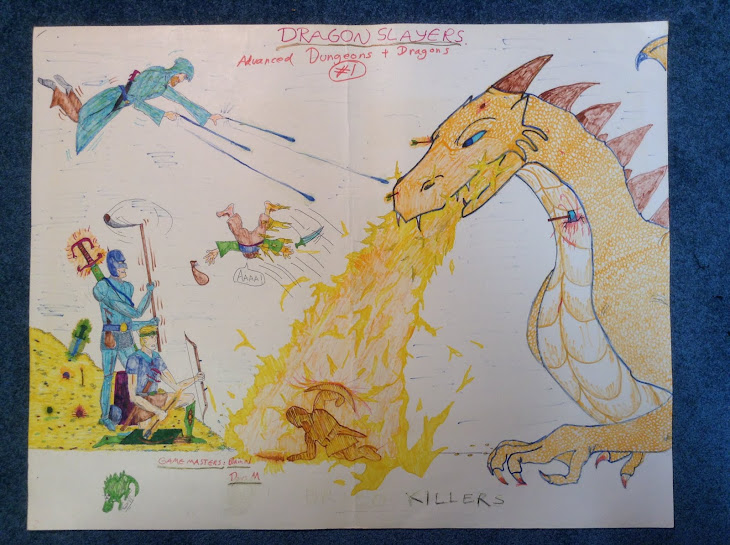The comment refers to Iain M. Banks's 1996 novel Excession, specifically, the idea of an "outside context problem" (OCP):
The idea of an OCP reportedly came to Mr. Banks while he played the computer game Civilization, wherein players control the evolution of a society from a single group of nomads to a global superpower.Based upon the idea of an OCP, perhaps prudence recommends that we not advertise our existence to alien civilizations?
Mr. Banks had developed a successful and prosperous medieval island society that he thought was doing quite well, until another civilization showed up off his shore with steel-hulled battleships. The arrival of the technologically advanced newcomers, he realized, posed for his simulated citizens a problem so far outside their normal context that they were effectively helpless.
Any society capable both of detecting our presence and of crossing the vast distances of space to reach Earth would be so far beyond us technologically as to leave humanity, to say the least, at a disadvantage. The first alien starship to arrive would be, to us, very much like those strange metal battleships to reach the shores of Mr. Banks’ digital kingdom.I'm pretty risk adverse in general, so the "lie low" strategy seems sensible. Sure, our interstellar neighbours might be like the Vulcans (RIP Leonard Nimoy). But they also might be like the aliens in, er, Alien and Aliens.


The OCP problem is that, of course, it's not the little guy who gets to decide when contact is made...Ian's civilization didn't decide it was time to meet the guys with the metal ships, and the Aztecs didn't get to decide it was time to meet the Conquistadors....so when or if it happens to us, it will be on THEIR terms. Scary!
ReplyDeleteScary, if we assume that the 'outsiders' are as stupid as humanity. The Spaniards were humans; the iron-hulled Mongols in Iain Banks' Civ game (we've all been there) were at least simulate humans.
ReplyDeleteI think we have to agree that interstellar travel is extremely complicated. Is it likely that any species organised enough to be capable of cracking that problem is also going to be so stupid as to think that waging wars of conquest is sensible behaviour?
It doesn't have to be conquest, contacte and trade would be the end of human civilization. if they are freindly and want to trade with us fairly or welcome us into the galactic congress our civilixation stops being our own and becomes a footnote in an older, wiser, and larger civilization.
Deleteif the aliens have 1000 years of progress they wish to share with us us how long does it take us to catch up? how long before our geniuses can offer civilization anythiing? when we do catch up it will be contributing to alien culture and civilization, not the one we had created for ourselves.
It doesn't have to be conquest, contacte and trade would be the end of human civilization. if they are freindly and want to trade with us fairly or welcome us into the galactic congress our civilixation stops being our own and becomes a footnote in an older, wiser, and larger civilization.
Deleteif the aliens have 1000 years of progress they wish to share with us us how long does it take us to catch up? how long before our geniuses can offer civilization anythiing? when we do catch up it will be contributing to alien culture and civilization, not the one we had created for ourselves.
Thanks for the comment, Red Orc. While I agree that it is unlikely that any advanced species would remain warlike, I could not help recall Larry Niven's story about the first contact between humanity and the "Kzinti". Apparently humans (now a space-traveling civilization) were so certain that no other advanced species would be warlike that they had abandoned the use of weapons altogether (none of their starships had weapons, etc.). Unfortunately, the Kzinti 'alien' psychology was intrinsically warlike.
DeleteGreat comments. Thanks!
ReplyDeleteI agree with JDsivraj that outright conquest isn't necessary for contact with an alien civilization to be disastrous for humanity.
And I agree, Nicholas Bergquist, that there is little that we can do to avoid an OCP. But (as the NP comment recommends) it might nonetheless be wise for us not to make an OCP *more* likely by broadcasting our presence to the universe.
Conflict is central to species survival, based on what we've thus far encountered. I think we shouldn't assume that advanced technology equals advanced social benevolence. The internet should prove that. Its even possible that a species could be advanced enough to not recognize us a sentient beings and destroy us as we destroy ants.
ReplyDeleteRe: "Conflict is central to species survival"
DeleteNot always, as there are *many* mutualistic species. (http://en.wikipedia.org/wiki/Mutualism_(biology))
Re: "a species could be advanced enough to not recognize us a sentient beings and destroy us as we destroy ants."
Yeah, that's the 'Lovecraftian' perspective. I think that this may in fact be the most likely potential form of OCP.
I think the main thing deciding whether the "lie low" strategy is a good idea isn't so much how dangerous alien civilizations might be, as it is how likely "lying low" is to affect whether or not we are detected and contacted/conquered by alien civilizations. Which, actually, even if we manage to hide all signs of civilization so Earth just looks like a life-bearing world with no local civilization, that's still going to be really interesting to any aliens that detect it with a telescope. Although probably switch off signals being actively sent to other stars in the hope of detection, that's a bit much.
ReplyDelete